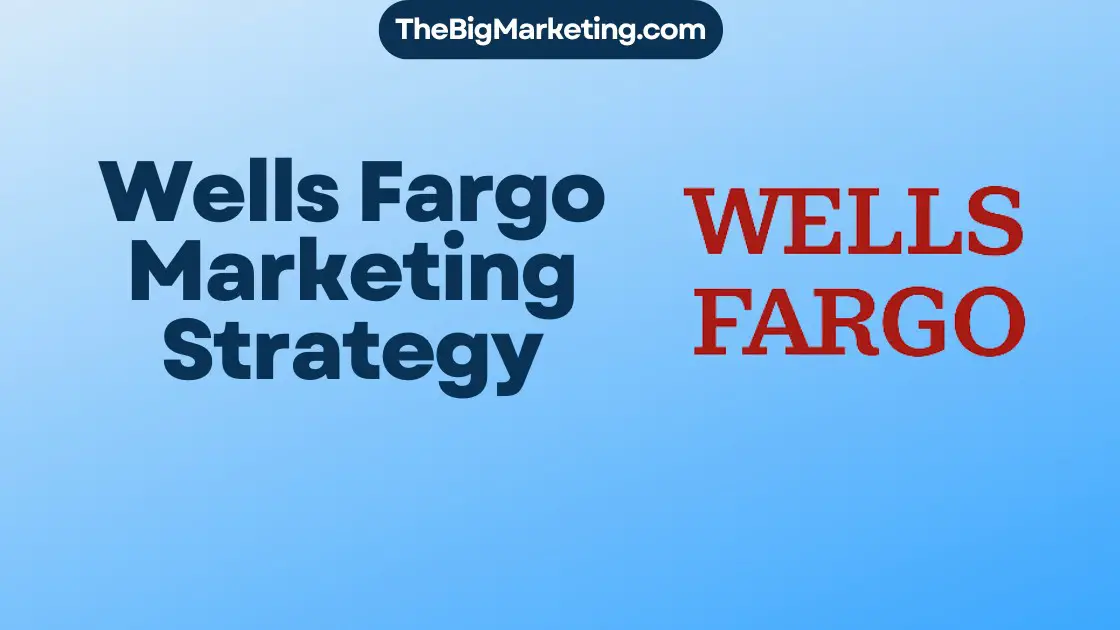ESG marketing refers to the promotion of an organization’s environmental, social, and governance goals through transparent reporting and relatable messaging. It is a strategic approach that focuses on building trust and credibility among investors, employees, and customers by demonstrating the company’s commitment to responsible brand growth. In an era where consumer trust is paramount, ESG marketing plays a vital role in aligning business practices with societal and environmental values.
ESG stands for Environmental, Social, and Governance – three critical pillars that encapsulate an organization’s impact on the world. Environmental factors focus on the company’s sustainability initiatives, including energy efficiency, waste management, and carbon emissions reduction. Social aspects revolve around the company’s efforts to support communities, foster diversity and inclusion, and ensure ethical treatment of employees and suppliers. Governance encompasses the company’s commitment to transparent and ethical business practices, including board diversity, executive compensation, and risk management.
ESG marketing is driven by the increasing demand for companies to address environmental and social issues while maintaining good governance practices. Consumers, employees, and investors are increasingly considering ESG factors in their decision-making processes. They expect companies to take responsibility for their impact on the planet and people, leading to the rise of responsible brand growth as a distinguishing factor among competitors.
Moreover, regulatory bodies, recognizing the importance of ESG in business practices, have introduced new regulations and proposals aimed at enhancing transparency in ESG reporting. This further emphasizes the significance of ESG marketing as organizations strive to meet stakeholder expectations and comply with evolving regulations.
Key Takeaways:
- ESG marketing promotes an organization’s environmental, social, and governance goals.
- It focuses on transparency, reporting, and relatable messaging to build trust and credibility.
- ESG factors are increasingly considered by consumers, employees, and investors.
- Regulations and proposals are driving the need for enhanced ESG reporting transparency.
- ESG marketing is crucial for responsible brand growth and aligning business practices with societal values.
Understanding ESG Marketing and its Importance in Today’s Business Landscape
ESG marketing, which stands for environmental, social, and governance marketing, goes beyond traditional corporate social responsibility programs. It focuses on specific goals related to the environment, society, and governance that are important to businesses. In a world where consumers are increasingly concerned about the impact of their purchasing decisions, ESG marketing has become vital for organizations.
One of the key aspects of ESG marketing is transparency. Stakeholders, including investors, employees, and customers, are demanding more visibility into companies’ efforts to protect the environment and meet social and governance standards. ESG marketing helps address this demand by reporting on the progress made towards ESG goals and initiatives.
ESG marketing is particularly crucial in today’s business landscape due to the prevalence of greenwashing. Greenwashing refers to instances where companies exaggerate or misrepresent their commitment to environmental or social responsibility. ESG marketing helps companies avoid greenwashing by providing genuine and transparent information about their sustainability efforts.
By adopting an ESG marketing strategy, organizations can build credibility and trust with their stakeholders. Investors and customers are increasingly considering ESG factors when making decisions, whether it’s investing in a company or purchasing a product. Therefore, ESG transparency has become a crucial aspect of marketing strategies.
To implement effective ESG marketing, companies need to understand their target audience and craft messaging that resonates with their values. By leveraging a stakeholder-centric marketing approach, organizations can create relatable content that connects with their stakeholders on a deeper level.
Overall, ESG marketing plays a vital role in shaping the reputation and perception of a company. It helps businesses differentiate themselves in the market, gain consumer trust, and meet stakeholder expectations. By focusing on ESG goals and initiatives, organizations can drive responsible brand growth and contribute to a sustainable and socially responsible future.
The Importance of ESG Marketing in Building Consumer Trust
ESG marketing plays a significant role in building consumer trust by providing transparency and reporting on a company’s progress in meeting its ESG goals. This approach enables consumers to make informed purchase decisions that align with their values and contribute to positive environmental, social, and governance impacts.
Through ESG reporting, companies demonstrate their commitment to responsible business practices and address stakeholder expectations for robust ESG programs. By actively communicating their efforts, companies can enhance their brand reputation and foster trust among consumers, employees, investors, and the wider community.
One way companies can showcase their commitment to ESG is through carbon offset calculations. These calculations quantify the carbon emissions generated by a company’s operations and then offset those emissions through various initiatives, such as renewable energy projects or reforestation efforts. Reporting on carbon offset calculations allows consumers to understand the tangible outcomes of a company’s sustainability efforts and reinforces the positive impact their purchase decisions can have on the environment.
Effective ESG marketing involves crafting relatable and context-driven messaging that resonates with consumers. Companies can highlight the positive impact they are making through relatable comparisons or narratives. For example, a clothing brand may communicate how their sustainable manufacturing practices reduce water consumption equal to X number of swimming pools or how their commitment to fair trade ensures ethical working conditions for their suppliers.
By emphasizing these positive aspects, companies build credibility and trust with their target audience. Consumers who align with a brand’s ESG values are more likely to trust the company, remain loyal, and advocate for their products or services.
Ultimately, ESG marketing is not only about attracting consumers but also about meeting stakeholder expectations for corporate responsibility. It aligns business objectives with societal and environmental challenges, enabling companies to contribute to a more sustainable and ethical future while simultaneously building consumer trust.
Key Benefits of ESG Marketing in Building Consumer Trust
| Benefits | Explanation |
|---|---|
| Transparency | ESG marketing provides transparency on a company’s sustainability efforts, fostering trust and informed decision-making among consumers. |
| Reinforces Brand Reputation | By actively communicating ESG initiatives, companies can strengthen their brand reputation as responsible and socially conscious. |
| Enhances Consumer Loyalty | ESG marketing attracts socially conscious consumers who prioritize supporting brands with positive environmental and social impact, leading to increased loyalty. |
| Meets Stakeholder Expectations | Effective ESG marketing demonstrates a company’s commitment to meeting stakeholder expectations for robust ESG programs, building trust and credibility. |
Creating an ESG Marketing Plan: Key Elements and Considerations
Developing a comprehensive ESG marketing plan requires careful consideration of key elements that align with the company’s goals and stakeholder expectations. By integrating a stakeholder-centric approach and utilizing quantitative and qualitative data, organizations can effectively communicate their commitment to ESG goals and build trust amongst their target audience.
Materiality Assessment for ESG Marketing
A materiality assessment is a crucial step in developing an ESG marketing plan. This assessment helps identify the most significant ESG issues that align with the business’s core values and resonate with stakeholders. By prioritizing these key issues, companies can ensure their marketing efforts are focused on areas that truly matter to their target audience.
Setting ESG Goals and Key Performance Indicators (KPIs)
Once the materiality assessment is complete, it forms the foundation for setting ESG goals and identifying key performance indicators (KPIs) to measure progress. ESG goals should be specific, measurable, achievable, relevant, and time-bound, aligning with the organization’s overall sustainability strategy. KPIs enable organizations to track and evaluate their progress towards these goals, providing tangible evidence of their commitment to ESG marketing.
Stakeholder Engagement in ESG Marketing
Stakeholder engagement is a critical aspect of an effective ESG marketing plan. Organizations should involve stakeholders throughout the process, ensuring their voices are heard and their expectations are understood. By engaging stakeholders early on, companies can tailor their messaging and initiatives to resonate with their target audience, building trust, and credibility.
Effective Communication of Quantitative and Qualitative Data
ESG marketing relies heavily on the collection and reporting of both quantitative and qualitative data. Quantitative data provides measurable evidence of a company’s progress towards its ESG goals, such as carbon emissions reductions or waste management statistics. Qualitative data, on the other hand, helps enrich the storytelling aspect of ESG marketing by showcasing the positive impact a company is making in areas such as community engagement or employee well-being.
A stakeholder-centric ESG marketing plan should leverage both types of data to create a well-rounded narrative that resonates with the intended audience. By effectively communicating the organization’s ESG initiatives and progress, companies can build trust, inspire action, and foster long-term stakeholder engagement.
How to Effectively Communicate ESG Messaging to Different Audiences
Effective communication plays a crucial role in successful ESG marketing campaigns. To effectively communicate ESG messaging to different audiences, it is important to understand your target audience and tailor the messaging to resonate with their values and interests.
One important aspect of ESG communication is utilizing different channels to reach specific audience segments. Social media platforms, such as Facebook, Twitter, and Instagram, can be powerful tools for engaging with a wide range of stakeholders, including customers, employees, investors, and the general public. By creating compelling content and fostering conversation around ESG topics, companies can increase audience engagement and build a community of like-minded individuals.
https://www.youtube.com/watch?v=GW7mvTNbtQw
A key factor in effective ESG communication is authenticity. Audiences are more likely to trust and engage with companies that demonstrate genuine commitment to ESG goals. It is important to make ESG relatable to the target audience by leveraging storytelling and showcasing the positive impact a company is making. By sharing success stories and highlighting tangible outcomes of ESG initiatives, companies can create emotional connections and inspire action.
Clear and accessible communication channels are also essential for engaging stakeholders effectively. Whether through annual sustainability reports, dedicated ESG websites, or regular updates on social media, companies should ensure that information about their ESG efforts is readily available and easy to understand. Transparent and open communication fosters trust and credibility in ESG marketing efforts, reinforcing the company’s commitment to responsible practices.
Example of Effective ESG Communication
A notable example of effective ESG communication is Starbucks’ commitment to sustainability and stakeholder engagement. The company regularly communicates its ESG initiatives and progress through various channels, including its annual Global Impact Report and social media platforms. Starbucks uses storytelling to highlight the positive impact it has on coffee farmers, the environment, and communities worldwide. By effectively communicating its ESG messaging, Starbucks has built a strong brand reputation, engaged stakeholders, and attracted environmentally-conscious customers.
| Key Strategies | Benefits |
|---|---|
| Utilizing social media platforms | Increased audience engagement and reach |
| Showcasing tangible outcomes | Create emotional connections and inspire action |
| Clear and accessible communication channels | Build trust and credibility |
The Role of ESG Marketing in Corporate Reputation and Brand Differentiation
ESG marketing plays a significant role in shaping corporate reputation and differentiating a brand from its competitors. By showcasing a company’s commitment to sustainability and social responsibility, ESG marketing builds trust and loyalty among customers, employees, and investors.
When companies prioritize environmental, social, and governance (ESG) factors, they attract socially conscious consumers who prioritize supporting brands with positive impacts. These consumers appreciate companies that align with their values and actively contribute to a more sustainable future.
ESG marketing effectively reinforces a brand’s reputation by highlighting its dedication to sustainable practices. It communicates to stakeholders that the brand is not only concerned with profitability but also actively works towards making a positive impact on society and the environment.
One of the key advantages of ESG marketing is the ability to create a unique selling proposition that differentiates a brand from its competitors. By authentically integrating social and environmental considerations into their operations, companies can position themselves as responsible and ethical market players.
Successful ESG marketing goes beyond simply communicating sustainable initiatives; it involves aligning corporate purpose with ESG goals. When a company’s ESG efforts reflect its core values and business objectives, it establishes a strong brand identity that resonates with stakeholders.
Aligning corporate purpose with ESG goals not only allows brands to differentiate themselves in the market but also attracts customer loyalty. Consumers are more likely to support brands that align with their values and actively contribute to social and environmental causes. ESG marketing helps foster emotional connections with customers, reinforcing their trust and loyalty.
In conclusion, ESG marketing plays a crucial role in shaping corporate reputation and brand differentiation. By showcasing a commitment to sustainability and social responsibility, companies can build trust, attract socially conscious consumers, and differentiate themselves in a crowded marketplace. Aligning corporate purpose with ESG goals further strengthens brand identity and builds lasting customer loyalty.
Successful ESG Marketing Campaigns and Examples
ESG marketing campaigns have proven to be powerful tools for raising awareness, fostering brand loyalty, and differentiating sustainable brands from their competitors. By authentically showcasing their commitment to environmental, social, and governance goals, companies have successfully engaged eco-conscious consumers and built a positive brand reputation.
Patagonia’s “Don’t Buy This Jacket” Campaign
Patagonia, a renowned outdoor clothing brand, launched the iconic “Don’t Buy This Jacket” campaign, which sparked widespread attention and encouraged consumers to make conscious purchasing decisions. By unapologetically discouraging overconsumption, Patagonia highlighted the importance of responsible consumption and the impact it has on the environment. The campaign’s authenticity and alignment with their target audience’s values resonated deeply with consumers who prioritize sustainability.
Other Successful ESG Marketing Campaigns
In addition to Patagonia, various sustainable brands have executed impactful ESG marketing campaigns, effectively differentiating themselves in the market. These campaigns have showcased the brands’ commitments to sustainability, social responsibility, and positive environmental impact.
| Brand | Campaign |
|---|---|
| Gucci | “Gucci Equilibrium” |
| Ben & Jerry’s | “Values-Led Sourcing” |
| Unilever | “Sustainable Living Plan” |
| TOMS | “One Day Without Shoes” |
These campaigns have not only increased brand awareness but have also attracted environmentally conscious consumers who align with the brands’ values. By effectively communicating their ESG initiatives, sustainable brands have bolstered their reputation and established themselves as industry leaders in responsible business practices.
The Impact of ESG Marketing on Company Reputation and Stakeholder Engagement
ESG marketing plays a vital role in shaping a company’s reputation and driving stakeholder engagement. By effectively implementing ESG marketing strategies, organizations can build trust and credibility with their customers, employees, investors, and the wider community. This section explores how ESG marketing influences brand reputation, fosters stakeholder engagement, drives consumer loyalty, and makes a tangible social impact.
Building Brand Reputation through ESG Marketing
A positive brand reputation is crucial for sustainable business growth and differentiation in today’s competitive landscape. ESG marketing allows companies to showcase their commitment to environmental, social, and governance goals, building trust and credibility among stakeholders. By demonstrating responsible business practices and highlighting their social impact initiatives, companies can establish a strong brand reputation that resonates with socially conscious consumers. This not only attracts customers who prioritize supporting sustainable brands but also helps companies stand out and gain a competitive edge in the market.
Fostering Stakeholder Engagement through ESG Marketing
ESG marketing is a powerful tool for fostering stakeholder engagement. By communicating transparently about their ESG initiatives and progress, organizations can connect with stakeholders on a deeper level. ESG marketing helps companies establish relationships based on shared values, fostering trust, and promoting engagement. Engaged stakeholders, including customers, employees, and investors, are more likely to support and advocate for a company’s ESG goals, contributing to its long-term success and impact.
Driving Consumer Loyalty through ESG Marketing
ESG marketing plays a key role in driving consumer loyalty. Socially conscious consumers are increasingly considering a company’s environmental and social impact when making purchasing decisions. They are more likely to support brands that align with their values and contribute to positive change. By effectively communicating their ESG efforts, companies can cultivate a loyal customer base that believes in their commitment to sustainability. ESG marketing allows companies to make their social and environmental impact relatable and tangible to consumers, nurturing long-term customer loyalty.
Making a Tangible Social Impact through ESG Marketing
ESG marketing enables companies to address real-world challenges and contribute to a more sustainable and ethical future. By actively implementing ESG strategies, organizations can make a positive social impact that goes beyond their core business operations. ESG marketing allows companies to showcase their efforts in areas such as renewable energy adoption, waste reduction, community involvement, and fair labor practices. Through ESG marketing, companies can inspire positive change, both within their organizations and in society at large.
Examples of Successful ESG Marketing Campaigns
| Company | Campaign | Impact |
|---|---|---|
| Patagonia | “Don’t Buy This Jacket” | Awareness of overconsumption and conscious purchasing |
| The Body Shop | Community Trade Program | Supporting fair trade and community development |
| Unilever | Sustainable Living Plan | Reduced environmental footprint and sustainable sourcing |
These examples demonstrate how successful ESG marketing campaigns have effectively communicated a company’s commitment to environmental and social causes, resulting in increased brand reputation, stakeholder engagement, and consumer loyalty.
Conclusion
ESG marketing plays a pivotal role in today’s business landscape, allowing organizations to build responsible brands, earn consumer trust, and engage stakeholders effectively. By promoting environmental, social, and governance goals through transparent reporting and relatable messaging, companies can differentiate themselves in the market and attract socially conscious customers. The positive impact of ESG marketing goes beyond profit; it helps shape a positive brand reputation and fosters loyalty among consumers.
Through effective communication of their ESG initiatives and progress, organizations can drive customer engagement and make a meaningful impact on the world. By aligning their business practices with their values and embracing ESG marketing, companies can contribute to a more sustainable future. ESG marketing is not limited to a single industry or sector; it is a powerful strategy that applies to companies of all sizes, from startups to well-established brands.
Furthermore, responsible branding is an outcome of ESG marketing that goes beyond mere financial success. It encompasses the development of long-term relationships with customers, employees, investors, and the wider community. By actively engaging stakeholders and addressing their expectations, companies can foster a sense of trust and credibility. ESG marketing is not just a trend, but a necessity in the modern business landscape, where responsible brands and sustainable practices are highly valued and sought after.
To achieve success in ESG marketing, organizations should adopt a stakeholder-centric approach, tailor their messaging to resonate with their target audience, and leverage storytelling to make ESG relatable. By integrating ESG into their core business strategies and effectively communicating their commitments, companies can drive positive change, foster consumer loyalty, and create a better future for all.






